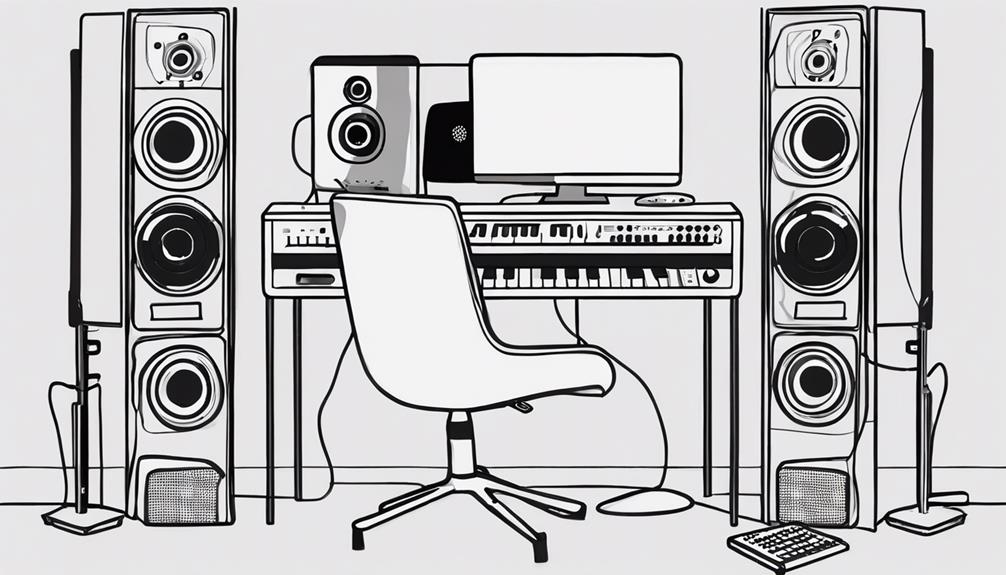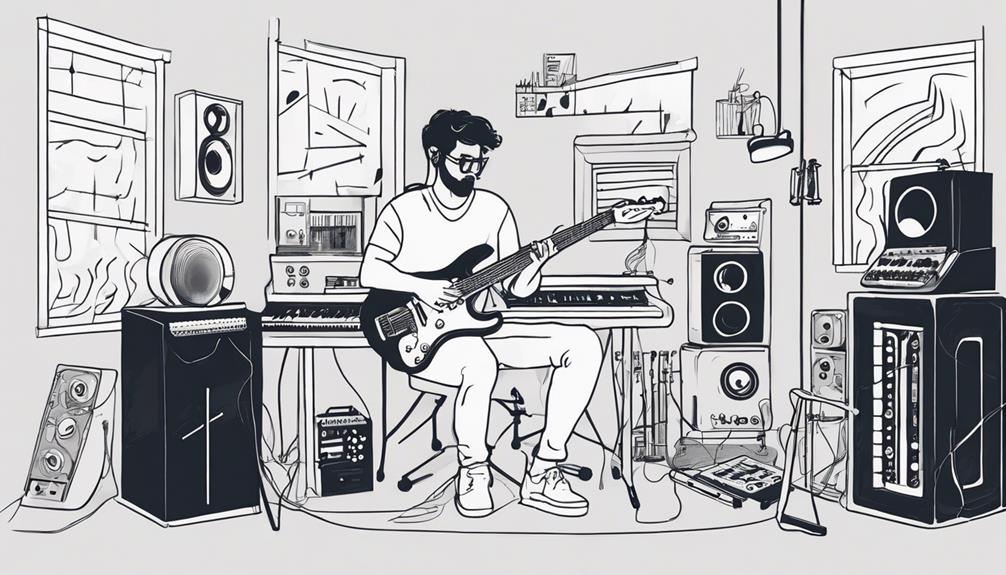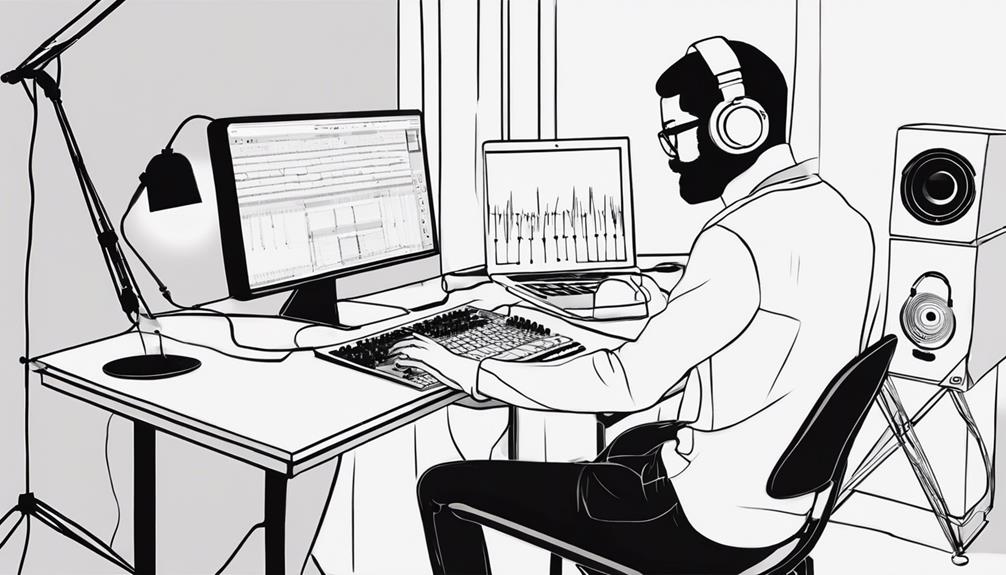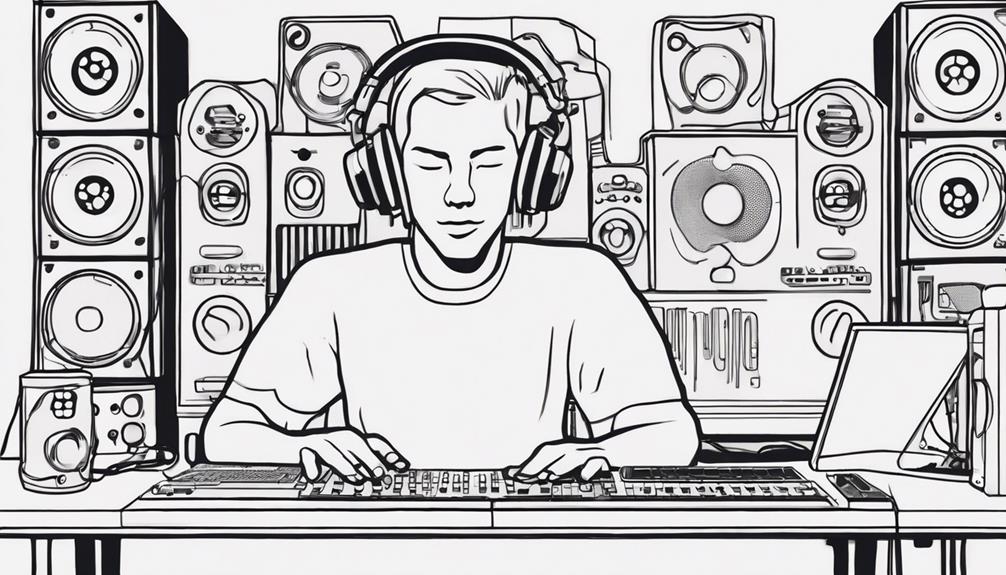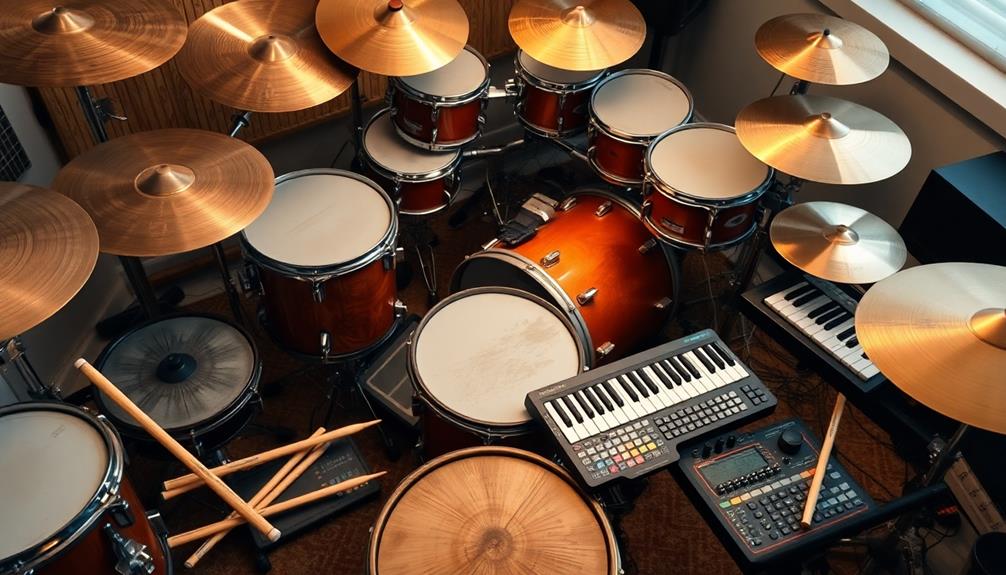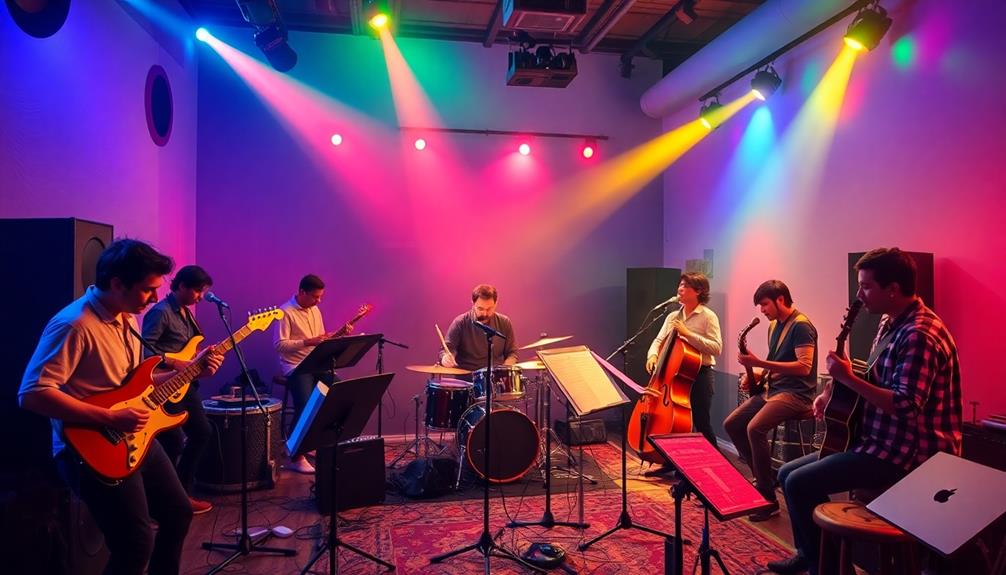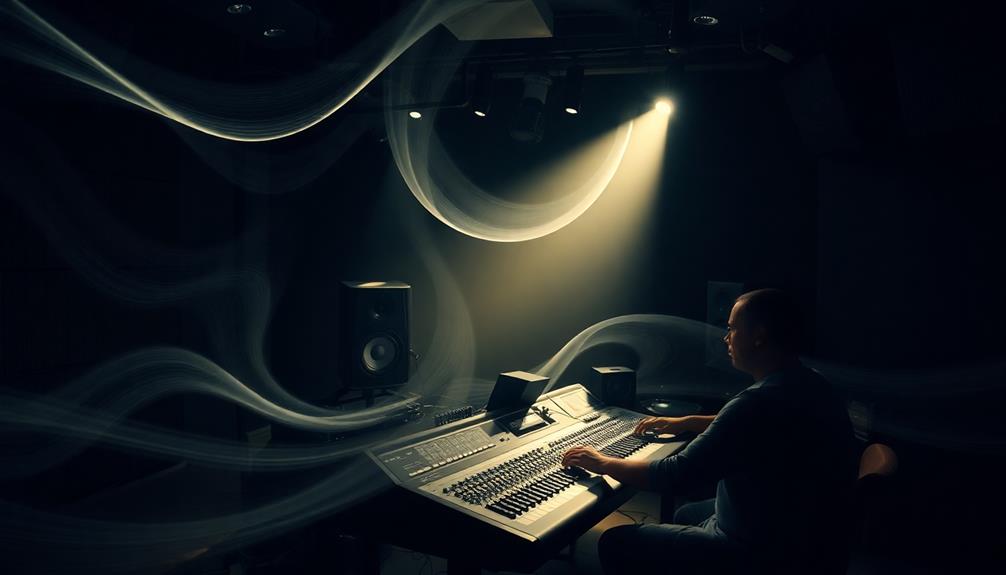“The Sound of Music” is a beloved family movie from 19651. It has enchanted people all over with its timeless tale and catchy tunes. Ever wonder what the famous cast is up to these days? Let’s find out where they are now.
Julie Andrews – From Maria to Narrator
Julie Andrews brought Maria von Trapp to life with her vibrant voice and charm. After “The Sound of Music,” she starred in more great movies like “Thoroughly Modern Millie” and “The Princess Diaries”2. She’s one of the most cherished actresses we’ve ever had.
Christopher Plummer – The Aloof Captain
Christopher Plummer played the strict yet endearing Captain von Trapp. His career didn’t stop there; he won an Oscar for “Beginners” at age 833. Plummer’s varied roles made him a legend in the movie world.
Charmian Carr – Liesl von Trapp
Charmian Carr stole hearts as Liesl, the eldest von Trapp daughter. Though it was her only big film role, she left a lasting mark. Carr later worked in interior design and wrote about her time on set. She sadly passed away in 2016, aged 73, but her role as Liesl remains iconic2.
Kym Karath – The Youngest von Trapp
Kym Karath was the cute Gretl von Trapp. Now 65, she’s stayed active in showbiz. Karath acted in “Lost in Space” and “Lassie” and has even done some modeling. She continues to be a cherished member of the “Sound of Music” clan12.
Nicholas Hammond – From Friedrich to Spider-Man
Nicholas Hammond played Friedrich and later became a TV staple. Post-movie, he appeared in “The Brady Bunch” and even as Spider-Man in the 1970s. His diverse roles have made him a memorable actor in television2.
Heather Menzies-Urich – Louisa’s Journey
Heather Menzies-Urich, our Louisa von Trapp, kept acting after the film. She featured in 60s and 70s TV shows, displaying her wide range of skills. Her 25-year-long career has left a strong impression on fans1.
Duane Chase – Kurt’s Life Beyond the Film
Duane Chase, who played clever Kurt von Trapp, chose a different route after the film. He became a software engineer after studying geology. His portrayal of Kurt still adds a special touch to the movie2.
The Legacy of “The Sound of Music”
“The Sound of Music” remains a timeless masterpiece loved by many. The hard work of its cast and crew keeps its magic alive. Its themes of love, family, and music still touch people’s hearts today13.
Julle Andrews and Christopher Plummer – Keeping the Spirit Alive
Julie Andrews and Christopher Plummer have stayed close to “The Sound of Music” over the years. Andrews narrates “Bridgerton,” while Plummer cherished his role as Captain von Trapp until his death in 2021. Their performances are still inspiring actors everywhere123.
The Enduring Legacy of “The Sound of Music”
“The Sound of Music” continues to touch hearts worldwide. Its memorable cast and music keep the film’s spirit alive. It enchants old fans and new, proving its timeless charm3.
Conclusion
The “Sound of Music” cast has made a lasting impact on the film industry. Julie Andrews, Christopher Plummer, and the others made the movie unforgettable. They’ve inspired and brought joy to so many of us. Let’s celebrate “The Sound of Music” and the wonderful memories it gives123.
Key Takeaways:
- “The Sound of Music,” released 58 years ago in 1965, continues to captivate audiences worldwide.
- Julie Andrews and Christopher Plummer had successful careers beyond “The Sound of Music,” starring in iconic films and receiving prestigious accolades.
- The cast members have pursued various paths, including interior design, software engineering, and photography.
- The enduring legacy of “The Sound of Music” is a testament to the film’s timeless story, memorable characters, and unforgettable music.
- Julie Andrews and Christopher Plummer have kept the spirit of “The Sound of Music” alive through their continued contributions to the entertainment industry.
Julie Andrews – From Maria to Narrator
Julie Andrews is known for her role as Maria in “The Sound of Music.”4 She captured many hearts as the cheerful governess. Following that role, she continued to shine in the film industry.
More recently, she has lent her voice as the narrator of “Bridgerton” on Netflix5. Her voice brings a special quality to the romance stories. Her narration has been highly praised, making her even more cherished5.
Andrews has shown great talent in her long career, including on Broadway5. She made her Broadway debut in “The Boy Friend” in 19545.
She has received many awards, like an Academy Award and a BAFTA Award5. Julie has also earned three Tony Award nominations among other honors5.
She has played memorable roles in movies and on stage, and even voiced characters5. She voiced Queen Lillian in “Shrek” and Gru’s mom in “Despicable Me”5.
Andrews also succeeded as a host and producer with “The Julie Andrews Hour” and “Julie’s Greenroom”5. Through these shows, she shared her love for the arts worldwide.
Her work from “The Sound of Music” to “Bridgerton” shows her incredible talent45. Julie Andrews remains an influential figure in entertainment, loved by many45.
| Key Facts about Julie Andrews |
|---|
| Active in the entertainment industry since 19455 |
| Recipient of an Academy Award, a BAFTA Award, two Emmy Awards, three Grammy Awards, and six Golden Globe Awards5 |
| Nominated for three Tony Awards5 |
| Recipient of the Kennedy Center Honors and the Screen Actors Guild Life Achievement Award5 |
| Honored with the AFI Life Achievement Award5 |
| Made a Dame (DBE) by Queen Elizabeth II in 20005 |
| Won the Academy Award for Best Actress for her role in “Mary Poppins” (1964)5 |
| Won the Golden Globe Award for Best Actress – Motion Picture Comedy or Musical for her role in “The Sound of Music” (1965)5 |
| Voice of Queen Lillian in the “Shrek” franchise (2001–2010)5 |
| Voice of Gru’s mother, Marlena, in the “Despicable Me” franchise (2010–present)5 |
| Received the Emmy Award for Outstanding Variety Musical Series for her show “The Julie Andrews Hour” in 19735 |
| Co-created and hosted “Julie’s Greenroom” in 20175 |
| Voice of Lady Whistledown in the Netflix series “Bridgerton” starting in 20205 |
| Author of numerous children’s books and two autobiographies5 |
Christopher Plummer – The Aloof Captain
Christopher Plummer, known for his role as Captain Georg von Trapp, made a big mark on the world6. With his brilliant acting in the 1965 hit “The Sound of Music,” he won hearts everywhere. Though unsure at first, his portrayal of the stern captain won over fans6.
Plummer’s career was full of high points, earning him an Oscar, two Tonys, and two Emmys6. He bagged an Academy Award in 2012 for “Beginners,” showing his wide-ranging talent.
In “Knives Out” (2019), Plummer was at his best again, working with a big-name cast6. This role further proved his skill in captivating audiences with stellar performances.
On February 5, 2021, the world lost Christopher Plummer. He was 916. Fans and fellow actors mourned, remembering his impactful career that touched so many.
Christopher Plummer leaves behind a legacy tied to Captain Georg von Trapp6. His deep and engaging portrayal, alongside Julie Andrews, made the character unforgettable. It keeps enchanting new fans even now.
*
| Statistical Data | Reference |
|---|---|
| Christopher Plummer won one Oscar, two Tonys, and two Emmys during his career. | 6 |
| He was known for his performance as Captain von Trapp in the 1965 musical “The Sound of Music.” | 6 |
| Mr. Plummer passed away at the age of 91 at his home in Weston, Conn. | 6 |
| He starred alongside Julie Andrews as Austrian naval officer Georg von Trapp in “The Sound of Music.” | 6 |
| Plummer initially disparaged “The Sound of Music” but later came to appreciate its family-friendly nature. | 6 |
Charmian Carr – Liesl von Trapp
Charmian Carr is famous for playing Liesl von Trapp in “The Sound of Music.”7 Even though she was older, Carr’s youthful charm shone through. She made Liesl a character many came to love.
After “The Sound of Music,” Carr didn’t act much longer. She was in just one TV movie before finding a new passion8. She dived into interior design and even had Michael Jackson as a client9. Carr’s switch to design left a mark in another creative field.

Sadly, Charmian Carr died in 2016, at 73 years old7. Yet, her role as Liesl won hearts across the globe. It ensures her talent is remembered always.
Kym Karath – The Youngest von Trapp
Kym Karath, known for her role as Gretl von Trapp, won hearts in The Sound of Music10. As a child actress, her talent really stood out. She left a lasting impression on viewers everywhere.
While filming The Sound of Music, Karath had a scary moment11. During the boat scene, she realized she couldn’t swim. It was a frightening experience that made her afraid of water. Despite this, Karath’s commitment to her role was clear, even as a child.
Despite such hurdles, Karath’s role as Gretl remains memorable. At only six, her incredible talent shone through, marking her place in the film’s history10.
After her iconic role, Karath’s path in showbiz changed. She paused acting to focus on her studies10. Yet, in 2005, she returned to acting with renewed passion. Her comeback highlighted her lasting charm and talent.
Karath has taken on many roles, showing her acting range. She’s been in TV series like Peyton Place, Lost in Space, and The Waltons. She also shined in films such as Spencer’s Mountain and Good Neighbor Sam11.
Karath’s life is full of both triumphs and challenges. She got into movies at just three years old12. Her dedication to her family was clear when her son, Eric, needed her12. Her deep care led her to help start The Aurelia Foundation. This charity supports people with special needs12.
Kym Karath’s journey in entertainment is truly special. Her role as Gretl von Trapp keeps winning over new fans. It shows how much The Sound of Music continues to be loved by people around the world10.
Nicholas Hammond – From Friedrich to Spider-Man
Nicholas Hammond was born on May 15, 1950, in Washington, D.C13. He first caught the public’s eye at 11 as a Broadway actor. His debut was in “The Complaisant Lover” in 1961. He shined in films like “Lord of the Flies” in 1963 and “The Sound of Music” in 196513. In “The Sound of Music,” he played Friedrich von Trapp, winning hearts globally.
Hammond then became a superhero icon. In the 1970s, he was cast as Spider-Man in “The Amazing Spider-Man” TV series13. This series, airing from 1977 to 1979, made him very famous. Across two seasons and thirteen episodes, he became Peter Parker/Spider-Man for many.
Following his superhero days, Hammond kept busy in showbiz13. He took on various TV roles in the early 1980s. By 1986, he played Dennis Conner in “The Challenge,” an Australian miniseries. Afterwards, he moved to Australia and gained citizenship there13. His acting range was showcased again in 2019, playing Sam Wanamaker in “Once Upon a Time in Hollywood” by Quentin Tarantino13.
Hammond’s life off-screen saw changes too. He was married to Laura Soli in 1980, but they parted in 198413. These days, he lives in Sydney with actress Robyn Nevin13. This companionship reflects the enduring connections from his “The Sound of Music” days.

Heather Menzies-Urich – Louisa’s Journey
Heather Menzies-Urich played Louisa von Trapp in “The Sound of Music.” This role made her famous. She acted for 25 more years, making a big impact on movies and TV.
At just 15, she played Louisa and showed her talent. Her role as the fun and playful sister was loved by many14.
She didn’t just act in “The Sound of Music.” She was also in “Hawaii” and “Piranha”14. On TV, she appeared in hits like “Dragnet” and “Bonanza”14. She was great in both movies and TV.
In 2017, we lost Heather Menzies-Urich when she was 68. But her work lives on. She left behind two kids, grandkids, and a great-grandkid14. Her family remembers her fondly.

Heather Menzies-Urich was strong even in tough times. After losing her husband, Robert Urich, to cancer, she started a foundation in his name14. The Robert Urich Foundation helps with cancer research and support.
The actors who were children in “The Sound of Music” are now 59 to 67 years old. Some still act. Heather Menzies-Urich’s role as Louisa von Trapp is unforgettable14. Her talent and contributions will always be remembered.
| Statistical Data | Reference |
|---|---|
| Heather Menzies-Urich played Louisa von Trapp, the third-oldest of the seven von Trapp children in “The Sound of Music.” | 2 |
| The film adaptation of “The Sound of Music” won five Academy Awards, including best picture. | 1, 2, 3 |
| Heather Menzies-Urich died at the age of 68 in Frankford, Ontario. | 2, 3 |
| Menzies-Urich’s husband, actor Robert Urich, passed away in 2002. | 1, 2 |
| Menzies-Urich established the Robert Urich Foundation after her husband’s death to raise funds for cancer research. | 2, 3 |
| Menzies-Urich is survived by two other children, several grandchildren, and a great-grandchild. | 2 |
Duane Chase – Kurt’s Life Beyond the Film
Duane Chase played Kurt von Trapp in “The Sound of Music.” After the film, he left acting for geology15. His love for the Earth drove him to pursue a degree15. However, he didn’t stay away from the arts forever.
Chase returned to acting with roles in commercials. His talent on screen remained sharp.
His bond with the “Sound of Music” cast is strong. They share memories of their time on the film.
Now, Chase continues to act. He also writes and directs15. These roles show his wide range of skills15.
His relationship with the “Sound of Music” team shows the movie’s deep impact. Their experience has created lifelong bonds.
Duane Chase’s career highlights after “The Sound of Music” include:
- Acting in commercials
- Exploring other artistic avenues such as screenwriting and directing

The Legacy of “The Sound of Music”
“The Sound of Music” has won over hearts around the globe, making it a timeless classic. It came out in 1965 and quickly became a cherished musical. It features unforgettable characters and melodies that have lasted through the years.

This movie wasn’t just a hit; it was a blockbuster. With a budget of $8.2 million16, it earned a whopping $286 million16. Around the world, 283 million people saw it in theaters16. It was the top-earning film for five years16.
The movie didn’t just earn money; it also won praise. It took home five Oscars, including Best Picture and Best Director16. Its story and performances touched people everywhere.
The film’s influence didn’t stop at the cinema. It first appeared on Broadway in 1959, bagging five Tony Awards17. There have been countless shows around the world since then17. As the last work of Rodgers and Hammerstein, it ended a golden age in theater, just months after Oscar Hammerstein passed away17.
What really set “The Sound of Music” apart was its music. Songs like “Do-Re-Mi,” “My Favorite Things,” and “Edelweiss” have become classics17. These tunes are still loved and sung by many today.
This movie also boosted the careers of its actors. Julie Andrews found success again in the 2000s, even receiving Emmy nods18. Christopher Plummer made waves by winning an Oscar in 201218. Other stars, like Charmian Carr and Heather Menzies-Urich, fondly remembered their time in the film as they ventured into new careers18.
“The Sound of Music” has impacted more than just the film industry. It has inspired people for generations and continues to capture hearts worldwide. Its beautiful story, music, and performances keep its legacy alive.
| Cast Member | Post-“The Sound of Music” Career |
|---|---|
| Julie Andrews | Starred in films and TV adaptations, earning Emmy nominations18 |
| Christopher Plummer | Won an Academy Award in 2012 and maintained a strong presence in film and theater18 |
| Charmian Carr | Pursued an interior design career and authored books related to the movie18 |
| Heather Menzies-Urich | Had a steady career in film and TV, including advocacy work for cancer research18 |
| Nicholas Hammond | Starred in the TV series “The Amazing Spider-Man” and appeared in other popular shows18 |
| Duane Chase | Pursued a career in geology after his role in “The Sound of Music”18 |
| Angela Cartwright | Shifted focus towards photography and authored a book on Hollywood design18 |
| Debbie Turner | Founded a successful floral company after retiring from acting18 |
| Kym Karath | Engaged in charity work supporting special needs adults post her acting career18 |
| Daniel Truhitte | Returned to portraying roles related to “The Sound of Music” in theater productions18 |
| Eleanor Parker, Richard Haydn, Peggy Wood | Had distinguished careers in film and TV, with significant roles following their appearance in “The Sound of Music”18 |
Julie Andrews and Christopher Plummer – Keeping the Spirit Alive
Julie Andrews and Christopher Plummer, stars of “The Sound of Music,” share a deep friendship. They often talk and recall their time on set. Andrews sees the film as an “old friend” and watches it to remember the good times19.
She has a strong connection with Plummer and other cast members. This bond shows the power of their shared experience making the movie19.
They’ve joined various film events and reunions over the years. Their happiness when together is clear and fans love it19.
Time hasn’t weakened their bond; they admire and respect each other. Their amazing performance in the film has helped its lasting fame20.
Their true friendship highlights the strong connections made in the entertainment world. Their shared memories add to the film’s magic and wide appeal20.

Julie Andrews and Christopher Plummer’s strong bond celebrates “The Sound of Music’s” timeless charm. Their friendship delights fans and keeps the musical’s spirit alive21.
Next, we’ll look into “The Sound of Music’s” enduring legacy and its effect on audience generations.
The Enduring Legacy of “The Sound of Music”
“The Sound of Music” first showed up in 1965 and has been a favorite ever since. It tells a charming story with a skilled cast and stunning views. This movie has become a classic, charming fans all over the world. Even though years have gone by, we still celebrate the cast’s performances. As new fans discover it, “The Sound of Music” stays important in film history.

Since its release, “The Sound of Music” has had a huge impact. It won many Academy Awards and its music sold incredibly well22. The tunes stayed on the charts for ages, showing just how much people loved them22. With over 25 million soundtracks sold, it’s one of the most popular ever22.
Christopher Plummer played Captain Von Trapp and made a big splash23. Though he joked about the film at first, his role is unforgettable now23. Plummer brought depth to the captain, making the character beloved by many23. Fans still admire his work in the film23.
The real von Trapp family’s story adds something special to “The Sound of Music”24. Maria von Trapp’s life shows us the strength of spirit and how music can change lives24. Their legacy lives on, not just in film but on stages worldwide24.
Apart from its story, the film’s moments stand out. Captain Von Trapp’s dance with Maria is still celebrated for its passion23. His act of defiance against oppression has inspired many23. The film teaches us about the importance of music, love, and family24.
“The Sound of Music” is not just a movie; it’s a piece of history. As time goes on, it continues to win hearts all over the globe. This film reminds us why it’s cherished, influencing many with its tale and tunes1.
| Statistical Data | Source |
|---|---|
| Released in 1965 | 22 |
| Blockbuster film, multiple Academy Awards | 22 |
| Best-selling soundtrack, sold over 25 million copies worldwide | 22 |
| Christopher Plummer’s iconic portrayal of Captain Von Trapp | 23 |
| Based on the real-life experiences of the von Trapp family | 24 |
| Von Trapp Family Singers performed for two decades | 24 |
Conclusion
The cast of “The Sound of Music” has given us a gift that keeps on giving. Julie Andrews and Christopher Plummer brought the story alive as Maria and Captain von Trapp. Their talent made the stage and film versions unforgettable.
Released in 1965, the movie “The Sound of Music” was a global hit25. It was the top-earning film for five years25. The movie got 10 Academy Award nominations and won five. These included Best Picture and Best Director25. The musical, which hit Broadway in 1959, won six Tony Awards25.
The musical and the real Trapp family story are different, yet the emotions are the same26. The song “Maria” beautifully shows the film’s heart26. The character of Baroness Schraeder adds depth to the story26.
Today, “The Sound of Music” is still loved by many. It has an 83% Tomatometer rating from 77 reviews and a 91% Audience Score from over 250,000 ratings27. Julie Andrews, alongside Christopher Plummer and Eleanor Parker, has earned a special place in movie history27.
“The Sound of Music” continues to reach new fans through Disney+, Prime Video, and Apple TV27. Its message about love, family, and music will ensure it remains cherished for a long time.
FAQ
Who were the main cast members of “The Sound of Music”?
What is Julie Andrews known for after “The Sound of Music”?
What notable roles did Christopher Plummer have after “The Sound of Music”?
What happened to Charmian Carr after “The Sound of Music”?
Did Kym Karath have any challenges during the filming of “The Sound of Music”?
What other roles did Nicholas Hammond play after “The Sound of Music”?
What other notable appearances did Heather Menzies-Urich have after “The Sound of Music”?
What did Duane Chase do after his role in “The Sound of Music”?
Why is “The Sound of Music” considered a classic film?
Are Julie Andrews and Christopher Plummer still friends?
What is the enduring legacy of “The Sound of Music”?
Source Links
- https://ca.style.yahoo.com/where-now-cast-sound-music-204529029.html – THEN AND NOW: The cast of ‘The Sound of Music’
- https://www.leicestermercury.co.uk/news/celebs-tv/sound-music-cast-members-much-6954198 – Here’s what happened to the cast of the Sound of Music
- https://abcnews.go.com/Entertainment/sound-music-cast-now/story?id=21161568 – ‘The Sound of Music’ Cast: Where Are They Now
- https://www.imdb.com/title/tt0059742/ – The Sound of Music (1965) ⭐ 8.1 | Biography, Drama, Family
- https://en.wikipedia.org/wiki/Julie_Andrews – Julie Andrews
- https://www.nytimes.com/2021/02/05/movies/christopher-plummer-dead.html – Christopher Plummer, Actor From Shakespeare to ‘The Sound of Music,’ Dies at 91 (Published 2021)
- https://en.wikipedia.org/wiki/Charmian_Carr – Charmian Carr
- https://www.washingtonpost.com/entertainment/charmian-carr-actress-who-played-liesl-in-the-sound-of-music-dies-at-73/2016/09/19/acdd2104-7e71-11e6-8d13-d7c704ef9fd9_story.html – Charmian Carr, actress who played Liesl in ‘The Sound of Music,’ dies at 73
- https://www.latimes.com/local/obituaries/la-me-charmian-carr-20160918-snap-story.html – ‘Sound of Music’ actress Charmian Carr, who played Liesl von Trapp, dies at 73
- https://www.the-sun.com/entertainment/tv-old/4342819/the-sound-of-music-gretl-von-trapp-kym-karath/ – The Sound of Music’s youngest Von Trapp child looks unrecognisable 56 years on
- https://en.wikipedia.org/wiki/Kym_Karath – Kym Karath
- https://www.foxnews.com/entertainment/sound-music-actress-kym-karath-recalls-close-bond-julie-andrews-why-fled-hollywood – ‘The Sound of Music’ actress Kym Karath recalls close bond with Julie Andrews, why she ‘fled’ Hollywood
- https://en.wikipedia.org/wiki/Nicholas_Hammond – Nicholas Hammond
- https://www.mercurynews.com/2017/12/25/sound-of-music-actress-heather-menzies-urich-dies-at-68/ – ‘Sound of Music’ actress Heather Menzies-Urich dies
- https://www.oprah.com/oprahshow/what-the-cast-of-the-sound-of-music-is-up-to-now/all – Where Are the <i>Sound of Music</i> Stars Now?
- https://en.wikipedia.org/wiki/The_Sound_of_Music_(film) – The Sound of Music (film)
- https://en.wikipedia.org/wiki/The_Sound_of_Music – The Sound of Music
- https://playbill.com/article/catching-up-with-the-von-trapp-family-singers-where-is-the-sound-of-music-cast-now-com-343493 – Catching Up With the Von Trapp Family Singers: Where Is “The Sound of Music” Cast Now?
- https://www.blackcasediaries.com/new-blog/the-case-of-the-sound-of-music-part-1-r533b-a3hhg-2rggt – The Case is Alive (With the Sound of Music) Part 1 — The Black Case Diaries
- https://www.imdb.com/title/tt0059742/reviews/ – The Sound of Music (1965) – IMDb
- https://www.intofilm.org/films/3032 – The Sound of Music
- https://concord.com/news/craft-recordings-celebrates-the-enduring-legacy-of-rodgers-hammersteins-cinematic-treasure-the-sound-of-music-with-a-definitive-super-deluxe-edition-of-its-beloved-soundtrack/ – Craft Recordings Celebrates the Enduring Legacy of Rodgers & Hammerstein’s Cinematic Treasure The Sound of Music With a Definitive, Super Deluxe Edition of Its Beloved Soundtrack – Concord
- https://ew.com/movies/captain-von-trapp-sound-of-music-christopher-plummer-legacy/ – Why Captain Von Trapp from ‘The Sound of Music’ is Christopher Plummer’s perfect legacy
- https://www.lyricopera.org/lyric-lately/the-joys-of-sound-of-music/ – The Joys of The Sound of Music
- https://www.britannica.com/topic/The-Sound-of-Music-film-by-Wise – The Sound of Music | Plot, Cast, Awards, & Facts
- https://thehistoricalnovel.com/2021/09/07/the-history-behind-the-sound-of-music/ – The History behind The Sound of Music
- https://www.rottentomatoes.com/m/sound_of_music – The Sound of Music | Rotten Tomatoes



